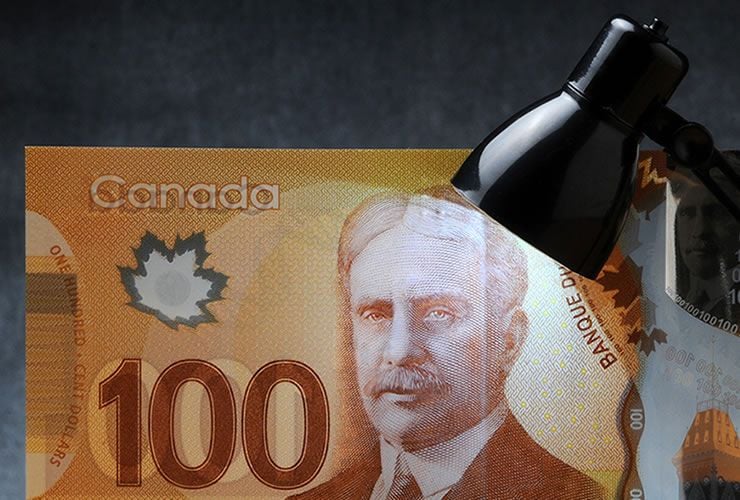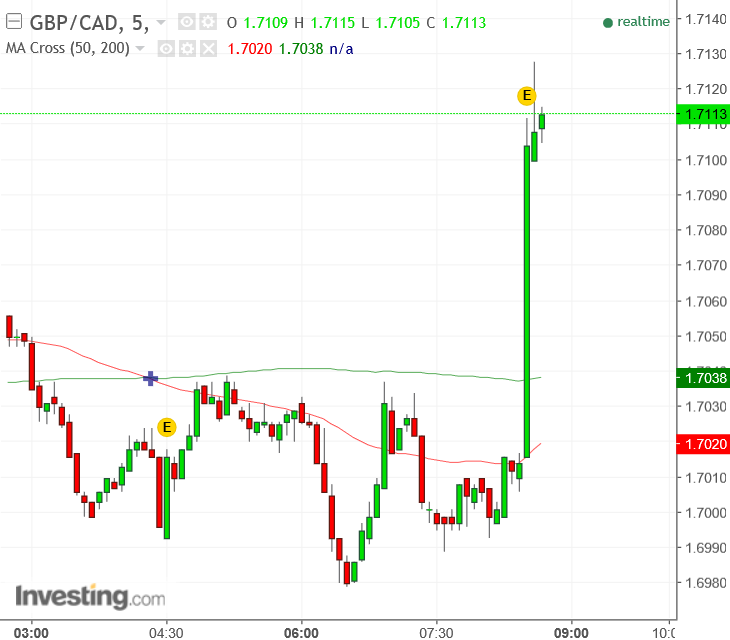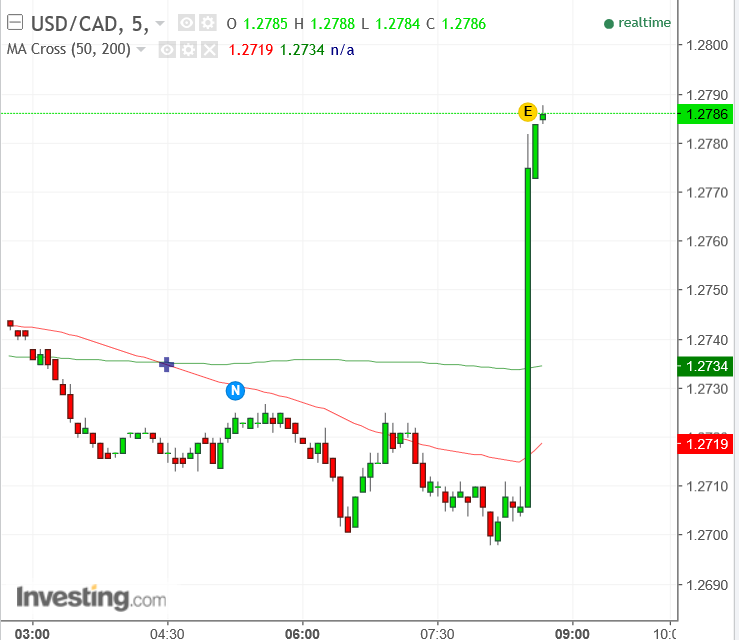Canadian Dollar Hands Back Thursday’s Gains After Economy Shown Stalling in October

The Canadian Dollar sold off Friday after worse-than-expected GDP data for October poured cold water over earlier hopes of another interest rate rise in the near future.
Canada's economy stalled in October, with GDP growth coming in at 0.0% according to Statistics Canada, when economists had expected a 0.2% rise.
The Pound-to-Canadian Dollar rate shot higher following the result, as the Loonie weakened, taking it from 1.7018 before the report’s release to 1.7105 at the time of writing.

Above: Chart showing changes in the GBP/CAD rate over Friday's session.
The USD/CAD rate rose from 1.2700 before the announcement to 1.2778 after.

Above: Chart showing changes in the USD/CAD rate over Friday's session.
The net effect of the afternoon’s data to wipe out the gains made by the Loonie on Thursday, when stronger than expected inflation and retail sales numbers sent it surging higher.
October’s slowdown is all the more surprising given strong retail sales growth for the same month, highlighted by data released Thursday. This showed sales rising by 6.7% when compared with the same period the year before, while economists had expected growth of just 5.5%.
"Although today's GDP figures were the last major release ahead of Christmas and the New Year, the economy didn't give us much reason for good cheer," says Nick Exarhos, an economist at CIBC Capital Markets.
"Today's results leave us tracking slightly below the Bank of Canada 2.5% forecast for the fourth quarter, which should throw cold water on what had been a pulling forward of expectations for rate hikes following this week's releases. All told, today's results should reverse the recent moves seen in the C$ (now lower) and bonds (yields lower)."
Thursday’s data had seen fixed income and interest rate derivatives markets pull forward the implied timing of the Bank of Canada’s next rate hike, from April to March. Some strategists had even floated the idea of an earlier move.
"Yesterday’s data suggests the probability of a January rate hike is rising," says Derek Halpenny, European head of global markets research at MUFG. "The key issue that may prompt the BoC to hold off on any early hike is the uncertainty related to the ongoing NAFTA negotiations."
Economic data isn't the only factor in the Canadian interest rate equation at the moment as the renegotiation of the North American Free Trade Agreement is just as important an influence over the BoC’s thinking, according to Halpenny.
"Given the potential for NAFTA uncertainty to escalate early in 2018, we are assuming the BoC will hold off from hiking on 17th January but incoming economic data in the meantime will be important for the outcome of that meeting," he adds.
Get up to 5% more foreign exchange by using a specialist provider by getting closer to the real market rate and avoid the gaping spreads charged by your bank for international payments. Learn more here.
